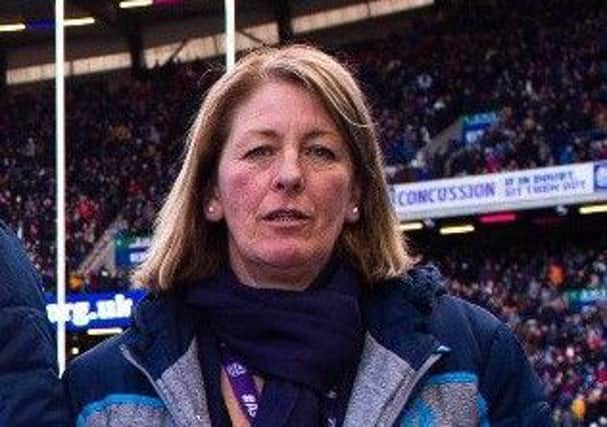Allan Massie: SRU short-sighted to omit Glasgow and north from Super Six


Even fewer, one has to say, will give the young Scots much chance of doing better against New Zealand’s youngsters tomorrow.
There have been real improvements in the selection (probably) and preparation (certainly) of our age-group teams. Nevertheless it remains the case that we are drawing players from a much smaller pool than almost all the other Tier One Nations, while most of them have better equipped academies closely linked to professional clubs. It follows that unless we happily have an exceptional group of players in a particular year, we are always likely to lose more matches than we win. This is sad, but it’s not shameful.
Advertisement
Hide AdAdvertisement
Hide AdIt may be that the SRU’s semi-pro Super Six experiment will improve matters, if, as I assume, it means that some at least of our more talented 19-year-olds are given the opportunity of playing demanding competitive rugby at a higher level than is generally available now. In this context, the choice of clubs deemed worthy of being in the Super Six seems even more deserving of criticism than it did when first announced. To have no semi-pro club in Glasgow and none north of the Forth, while there are three in Edinburgh, makes little sense to me and no sense at all to many. Given the burgeoning support for Glasgow Warriors, and that club’s success, the SRU should surely have insisted on one of the chosen Super Six being located there.
The SRU rightly encourages young players to get some academic or technical qualifications not necessarily relating to sport. But how does anyone based in, say, Aberdeen combine studies there with whatever might be offered by a Super Six club. It wouldn’t be impossible, but certainly difficult and demanding. Unnecessarily so, one would think. The concentration of semi-pro rugby in Edinburgh looks very short-sighted.
It sits oddly with the SRU’s encouragement of what is called “the community game” in parts of the country where there used to be very little rugby at all, and consequently no great interest in it. This weekend the SRU is taking a programme of workshops and sessions to the Caledonia North region. These will be held at 24 clubs and schools. This offers evidence of the remarkable growth of rugby in the north-east. When I was growing up in Aberdeenshire in the 1940s and ’50s, I don’t recall there being a single rugby club there outside the city. There were five in Aberdeen itself – Aberdeen Grammar School FPs, Gordonians, Aberdeensire, Aberdeen Wanderers and Aberdeen University, and a fair number of Scottish internationalists played for one or other of these clubs: JRS “Donnie” Innes, Dally Allardice, RM Bruce, Dr DWC Smith (later manager of the 1971 Lions), Ernie Michie (a Lion in South Africa in 1955). Further north there was RAF Kinloss and Highland in Inverness, but that was about it. Most of the north of Scotland was a rugby-free zone, and indeed there was precious little rugby between Aberdeen and Dundee.
Now this SRU roadshow is visiting schools on Deeside – in Huntly, Rothes and Elgin, in none of which rugby would have been played then – and clubs which didn’t then exist all over the north-east. Likewise who would then have thought that Shetland, Orkney and Caithness would have clubs playing in regional leagues and that there would be rugby clubs all down the west coast and in some of the Hebridean islands.
No doubt most of this rugby is of the kind that is commonly called recreational, but then most rugby everywhere is still happily recreational – played for fun and enjoyment – even, I dare say, in New Zealand. These clubs depend for their very existence on the enthusiasm of volunteers and without them our resources at the top level would be thinner than they are. In this context, it is worth remarking that the present president of the SRU, Dee Bradbury, is a member of the Oban club and that her son Magnus, who may well be playing for Scotland in the World Cup this autumn, began his career playing mini-rugby there.
Which reminds me that Jim Telfer once said to me that if he had been born in some other part of Scotland than the Borders he probably wouldn’t have played rugby at all. That was then; things are different now.